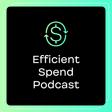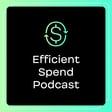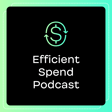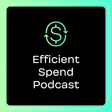
Incrementality & App Programmatic - Remerge Deep Dive | Pan Katsukis
SUBSCRIBE TO LEARN FROM PAID MARKETING EXPERTS 🔔
The Efficient Spend Podcast helps start-ups turn media spend into revenue. Learn how the world's top marketers manage their media mix to drive growth!
In this episode of the Efficient Spend Podcast, Pan Katsukis, CEO of Remerge, dives deep into the intricacies of incrementality testing and its critical role in modern marketing. Pan shares insights on optimizing media mixes, avoiding cannibalized spend, and navigating the evolving challenges of privacy regulations in the ad tech space.
About the Host: Paul is a paid marketing leader with 7+ years of experience optimizing marketing spend at venture-backed startups. He's driven over $100 million in revenue through paid media and is passionate about helping startups deploy marketing dollars to drive growth.
About the Guest: Pan Katsukis is the CEO and co-founder of Remerge, with over a decade of experience leading programmatic advertising and app re-engagement initiatives. He is passionate about leveraging data-driven strategies and incrementality testing to help global brands optimize their ad spend and drive scalable growth.
VISIT OUR WEBSITE: https://www.efficientspend.com/
CONNECT WITH PAUL: https://www.linkedin.com/in/paulkovalski/
CONNECT WITH PAN: https://www.linkedin.com/in/katsukis/
EPISODE LINKS:
https://www.remerge.io/incrementality
https://www.remerge.io/methods
https://developer.apple.com/app-store/user-privacy-and-data-use/
https://www.google.com/ads/data-driven-attribution/
https://developers.google.com/ads-data-hub
https://support.google.com/analytics/answer/1008015
https://www.adjust.com/resources/insights/ios14-idfa-privacy-report/



